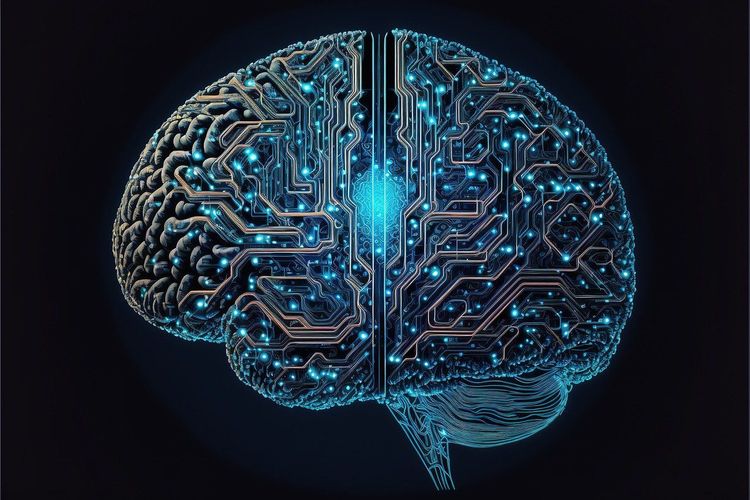Navigating the rapidly evolving field of AI can be overwhelming. Until an AI can take on this task for you, here’s a concise overview of recent developments in machine learning, along with significant research and experiments we’ve yet to delve into individually.
This Week in AI: OpenAI kicked off its inaugural developer conference, which will likely be the first of many. During the keynote, OpenAI unveiled a variety of new offerings, including an enhanced GPT-4, advanced text-to-speech models, and an API for the image-generating DALL-E 3.
The standout announcement was undoubtedly the introduction of GPTs.
OpenAI’s GPTs allow developers to create their own conversational AI systems using OpenAI’s models, which can then be published on the GPT Store, an OpenAI-hosted marketplace. Soon, developers will even have the opportunity to monetize their GPTs based on user engagement, as stated by OpenAI CEO Sam Altman during the conference.
“We believe that by providing people with better tools, they can achieve incredible outcomes,” Altman remarked. “You can build a GPT... and publish it for others to use. By combining instructions, extensive knowledge, and actions, these can become incredibly helpful.”
OpenAI's transition from an AI model provider to a comprehensive platform has been fascinating, yet not entirely unexpected. The company hinted at its strategic shift back in March with the launch of plugins for ChatGPT, which introduced third-party integration into OpenAI’s ecosystem for the first time.
What surprised many, including myself, was the extensive range of tools OpenAI introduced for building and commercializing GPTs right off the bat.
My colleague Devin Coldewey, who attended the conference, noted that while the GPT demos were “a little glitchy,” they largely performed as intended. Importantly, GPTs do not require any coding background and can be tailored in complexity by the developer. For instance, one could train a GPT on a collection of cookbooks to answer specific ingredient queries or feed it a company’s proprietary codebases to assist in style checks and best practices.
This development essentially democratizes the creation of generative AI applications—particularly for those leveraging OpenAI’s models. If I were a competitor in the AI space—especially a smaller entity without Big Tech backing—I’d be scrambling to devise a strategy in response.
The potential impact of GPTs could disrupt consulting firms whose business models revolve around developing similar solutions for clients. For businesses with skilled developers, choosing model providers that don't offer any app-building resources could become less appealing, given the complexities of integrating a provider’s APIs into their existing workflows.
Is this a positive shift? I would argue not necessarily, as there are concerns regarding monopolistic tendencies. Nevertheless, OpenAI is capitalizing on its first-mover advantage—both positively and negatively.
Other Noteworthy AI Developments This Week:
- Samsung Unveils Generative AI: Following OpenAI's conference, Samsung introduced its generative AI family, Samsung Gauss, at the Samsung AI Forum 2023. This suite includes a large language model, a code-generation model, and a model for image creation and editing, currently being utilized internally, with a public launch expected soon.
- Microsoft Enhances Startup Support: Microsoft has announced updates to its Microsoft for Startups Founders Hub, which will now feature complimentary Azure AI infrastructure for startups. Y Combinator founders will be the first to access these Nvidia-based GPU virtual machine clusters, followed by other Microsoft portfolio startups.
- YouTube Explores Generative AI Features: YouTube has announced upcoming experiments with generative AI capabilities for premium subscribers. Soon, users will be able to interact with an AI-driven conversational tool for content inquiries and receive summarized insights from video comments.
- An Interview with DeepMind’s Robotics Lead: A detailed conversation with Vincent Vanhoucke, head of robotics at Google DeepMind, covered the company’s broader ambitions in robotics, generative AI, and workplace innovations.
- Kai-Fu Lee’s 01.AI Unveils Model: After just seven months, Kai-Fu Lee’s AI startup, 01.AI, has launched its first model, the open-source Yi-34B, gaining a valuation of $1 billion.
- GitHub Announces Customizable Copilot: GitHub revealed plans for an enterprise subscription tier to allow companies to tailor its Copilot tool based on internal codebases. Additional updates regarding Copilot Chat were also shared at the GitHub Universe conference.
- Hugging Face Launches Innovative Model Team: AI startup Hugging Face has introduced a two-person team dedicated to developing some of its most robust tools, showing significant promise and capability.
- Mozilla’s AI Chatbot for Consumers: Mozilla has launched its first large language model, Fakespot Chat, following its acquisition of Fakespot. The chatbot aims to assist consumers with online shopping by answering product questions and suggesting useful inquiries.
Further Insights into Machine Learning:
Machine learning continues to make strides across various sectors by delivering accurate short-term predictions based on vast datasets. For instance, models can potentially extend earthquake warning times by providing critical seconds for individuals to take cover, while Google excels at forecasting weather patterns.
Google's latest initiative, MetNet-3, is a sophisticated physics-based weather model that leverages multiple variables (like temperature, wind, and cloud cover) to generate highly accurate short-term forecasts. Drawing from older models and enriching them with additional data sources, MetNet-3 showcases the latest advancements in weather prediction technology.
In more specialized research, a team from the University of Kansas developed a detector specifically aimed at identifying AI-generated text in chemistry journal articles. While this may seem niche, it demonstrates the ongoing evolution of tools in text analysis. Co-author Heather Desaire noted, “We were focused on accuracy, aiming to demonstrate that targeted solutions are feasible.”
OpenAI's efforts regarding AI-written text detection have been criticized for their limited accuracy, but the researchers successfully trained a model on American Chemical Society articles, achieving notable results.
Research is also exploring AI's predictive capabilities in college admissions. Studies from Colorado University and UPenn found that machine learning models could identify specific qualities in student essays, such as leadership traits, aiding admissions officers in their selection processes.
However, it’s essential to remain aware of the limitations of AI. A recent study from the University of Washington highlighted mixed results when researchers tested AI tools against their accessibility needs; while some experienced biases in AI-generated summaries, others found them to assist in communication.
On a more positive note, an individual on the autism spectrum reported that using an AI language model improved their confidence in workplace communications, demonstrating AI’s potential for personal support.
In light of these developments, various states and municipalities are beginning to draft regulations concerning AI usage in official capacities. For example, Seattle has established a framework that requires adherence before an AI model can be implemented.
In the realm of virtual reality, a new machine learning model, designed to enhance gesture detection, has revolutionized interactions with virtual objects. Lead author Per Ola Kristensson aptly pointed out that VR needs to provide opportunities for interaction that exceed conventional methods, sparking creativity in user engagement.
Lastly, the EPFL in Switzerland is hosting an exhibition titled "Cut/Paste," which examines comic history from the 1950s and speculates on AI's role in enhancing these narratives. As artists experiment with generative technologies, the ethical and copyright implications will likely remain at the forefront of discussions.
Stay tuned for further developments in the AI landscape—it's a field ripe with potential and innovation.







